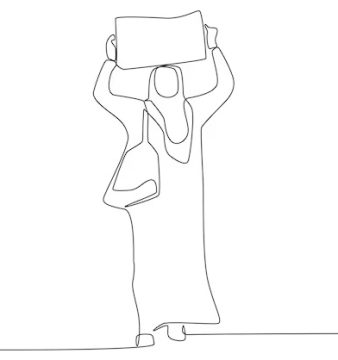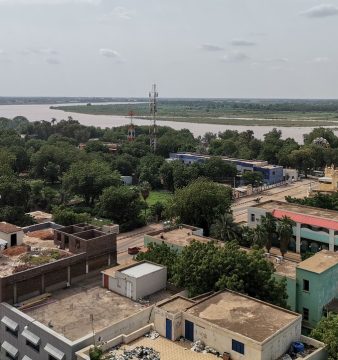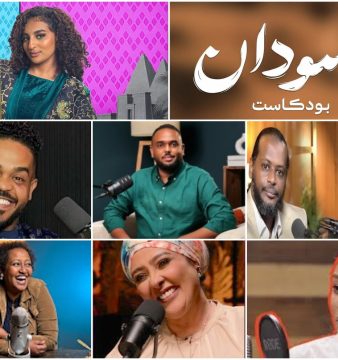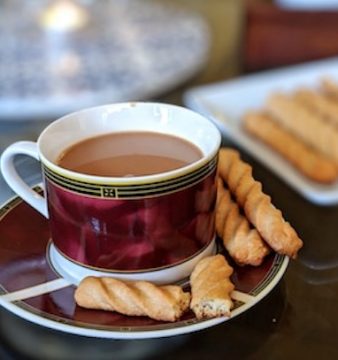Sudanese ‘Azaa and the Normalisation of Death
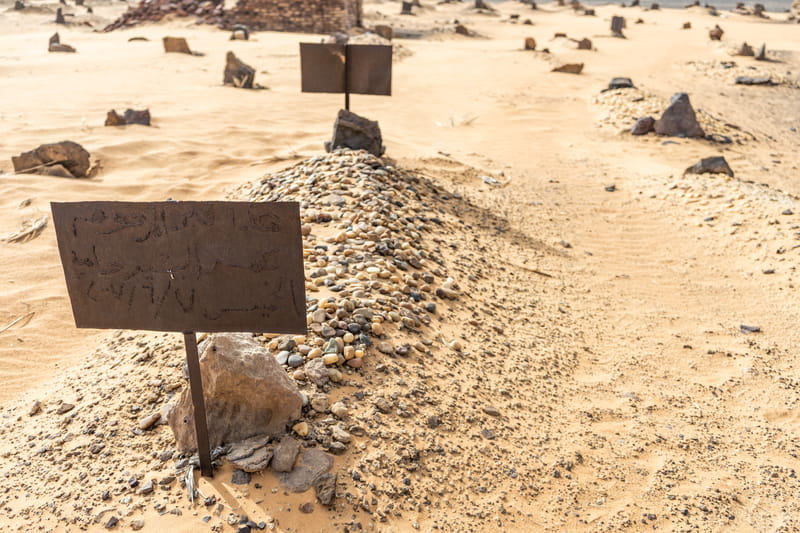
One of the best things in Sudanese culture is the support the community offers in death, especially during funerals or ‘azaa as it is known in Sudan. As soon as the news of a person’s death breaks out, people, especially family, and close relatives and friends, as well as neighbours come to offer their condolences, and try to help and lessen the burden of funeral costs and services. They storm the house cleaning, dusting, and making sure it is presentable and ready to expect guests.
Tons of household essentials such as flour, oil meat and other foods are brought in, as well as water, tea and coffee. Women work hard to cook and prepare food to feed the guests – hundreds could come to offer their condolences. Every task of the ‘azaa will be completed by someone from the kafan used to cover the deceased to and the siwan where the guests will have a place to stay. Most, if not all, of ‘azaa expenses will be paid for through jameia which is money gathered by family members and other loved ones to help cover the costs of the burial and funeral. Everything would be taken care of so that the relatives and loved ones of the deceased have nothing to worry about and have enough room and headspace to grieve. Generally, a jameia, also known as al kashef, is when a group of people, most commonly family, friends or neighbours, pay a small amount of money monthly, which is then saved up for emergency cases such as death, sickness or even weddings.
When offering condolences during a ‘azaa, Sudanese say ‘al barka feekom‘ which loosely translates to ‘blessings upon you’, meaning he/she left you with blessings and goodness. Sometimes, relatives and other loved ones would write poems about the deceased, praising, describing and expressing the sadness they feel after their loss.
Funerals or ‘the mourning period’ commonly last for three days, following Islamic teachings. After that, most guests will leave only to come back on the 15th day and 40th day of the funeral as a sign of continuous support and let the family of the deceased know that they will be left alone during this difficult time. On those special days, food and drinks will be prepared and distributed to people in need as a good deed or charity, known as sadaqah in Islam, as a way of honouring the deceased. In addition, people will gather and be assigned a number of pages to recite from the holy Quran to complete the holy book in a practice called Khatm al Quran on behalf of the deceased, followed by making dua or prayers for him/her.
The ongoing war in Sudan has changed everything, even death and subsequently funerals. Families, neighbours, and communities in general have been separated and scattered throughout the world. According to the UNHCR, the war, which began in April 2023 between the Sudanese Armed Forces (SAF) and the paramilitary Rapid Support Forces (RSF), has displaced 5.4 million people within Sudan and over 1.4 million people into five neighbouring countries.
I felt empty, broken, unable to face the fact that a person whom I loved and shared a life with was now gone. I didn’t know where to go, whom to call or what to do. I wanted to wake up and realise it was all a nightmare, but reality hits hard.
Like millions of Sudanese, my friend had to flee Sudan and seek refuge in Egypt. Unfortunately, only she and her cousin were able to do so, and the rest of the family were going to follow them after a while. However, death does not know time or circumstances. Her cousin lost her life in an accident in Egypt. My friend had absolutely no one in the neighbouring country at the time. They were waiting for the rest of their family to cross the border. She said, ‘When the doctors told me she was gone, I felt frozen, stuck, unable to process or comprehend. I never had to deal with something like this before. My head was spinning and a spiral of thoughts engulfed me. I knew no one but her here, and she left me all alone. As selfish as it may seem now that was one of my thoughts. I felt empty, broken, unable to face the fact that a person whom I loved and shared a life with was now gone. I didn’t know where to go, whom to call or what to do. I wanted to wake up and realise it was all a nightmare, but reality hits hard. I missed my neighbourhood and our community so much at the time.’ Luckily, she later found out she had distant relatives in Egypt that were able to help and support her. However, the experience changed her forever.
‘Please do everything you can to bury me at my homeland. Please take me home.’
My cousin’s father passed away outside of Sudan, as well. Their family left Sudan in hopes of not just a better life, but just a life in general. Leaving death behind and trying to seek life only for death to follow, as well. Sickness did not provide the father with much time. His last words were, ‘Please do everything you can to bury me at my homeland. Please take me home.’ I’ve always wondered why it would matter where you will be buried. Will it feel different? Will the person feel anything at all? Thinking logically made no sense, but now after leaving my homeland too, I can relate to him. It will make all the difference in the world to know that you’re buried at the place you grew up in and knew every inch of. It almost feels like you will not be alone. There is a Sudanese phrase that translates to ‘one who’s far from the eye is far from the heart’. Being buried away from home feels like you will be far from the heart, you will be forgotten the minute everyone leaves the grave, like you the memory of you will fade away. That might not be his reasoning to why he wants to be buried in Sudan, but that’s how I see it. Sadly, due to many circumstances from war, closed borders and other challenges, he was buried thousands of miles away from his beloved country.
I have suffered a loss myself recently. My grandmother Om Alhassan Aldabi, or Omi Altoma as we loved to call her, passed away at the age of 87. She was the light of our lives. Unfortunately, due to the war, my family and I relocated to a different country, leaving my grandmother and other family members behind in Sudan. Soon after we fled, my grandmother got sick and had to be hospitalised. My father could not stay with us any longer. He was torn between staying with us as we settle into this new life in a new country, or go back to see his mother and be with her. We insisted that he travel back to Sudan, and as we kept praying for them to be reunited and for our grandmother to be better, God had other plans. Sadly, Omi Altoma passed away leaving her sons, daughters and grandkids longing for her. My father did not get the chance to see her one last time and say goodbye to his mother. No words will be enough to describe the agony.
‘In three words, I can sum up everything I’ve learned about life. It goes on. Death will never be a normal event no matter how many times you come face to face with it. There will always be this cloud of emotions and realisations with every death announcement’
As Robert Frost once said, ‘In three words, I can sum up everything I’ve learned about life. It goes on. Death will never be a normal event no matter how many times you come face to face with it. There will always be this cloud of emotions and realisations with every death announcement’. And now with everything happening from war to displacement to losing everything and financial burden, losing a loved one is 10 times harder. However, with the support of the many large and united Sudanese communities in Sudan and abroad who uphold Sudanese customs make the losses easier.
Lamia Abdallah Ahmed is a final-year medical student at Ahfad University for Women (AUW). She is also a content writer and storyteller who lives for reading, writing, and fighting for human rights.

